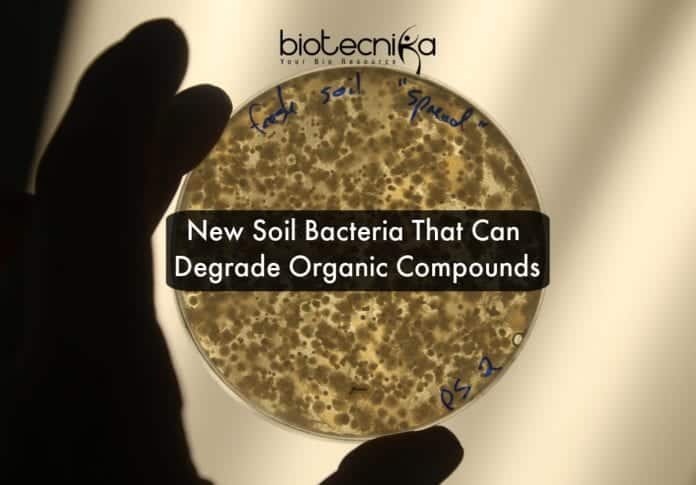A new species of soil bacteria that can degrade organic compounds, including carcinogenic chemicals and pollutants released during the burning of oil, coal, gas, and waste have been discovered by scientists. This new discovery could lead to new ways of fighting global warming and environmental pollution.
Dan Buckley and his team from Cornell University in the US identified the new bacterium as the member of a genus of bacteria that carry the ability to degrade volatile compounds. Sometimes, they also possess the capacity to form plant root nodules that trap atmospheric nitrogen in the soil. The new bacteria is named as Paraburkholderia madseniana after the late Gene Madsen, the microbiologist who initiated this research. He died in 2017 before he could confirm his discovery.
The scientists sequenced the bacterium’s genes and published their findings that it is a unique species in the International Journal of Systematic and Evolutionary Microbiology
The madseniana was observed to be exceptionally skilled at breaking down aromatic hydrocarbons that make up a major component of soil organic matter and plant biomass called lignin.
The newly discovered bacteria could become a potential candidate in waste degradation research and a key contributor to the process of cycling carbon
minerals in the soil.The researchers studied the symbiotic relationship between the forest trees and bacteria and found that the bacteria degrade organic matter in the soil for trees in return for the carbon fed by trees.
During this process, bacteria help to release phosphorus and nitrogen for the trees.
The understanding of how bacteria break down the carbon in soil and degrade other pollutants can help in the sustainability of soil and to predict the future global climate.
Roland Wilhelm, a postdoctoral associate in Buckley’s lab, is the first author of the paper. Other co-authors included Sean Murphy, Nicole Feriancek, David Karasz Christopher DeRito, and Jeffrey Newman, a biology professor at Lycoming College.






























